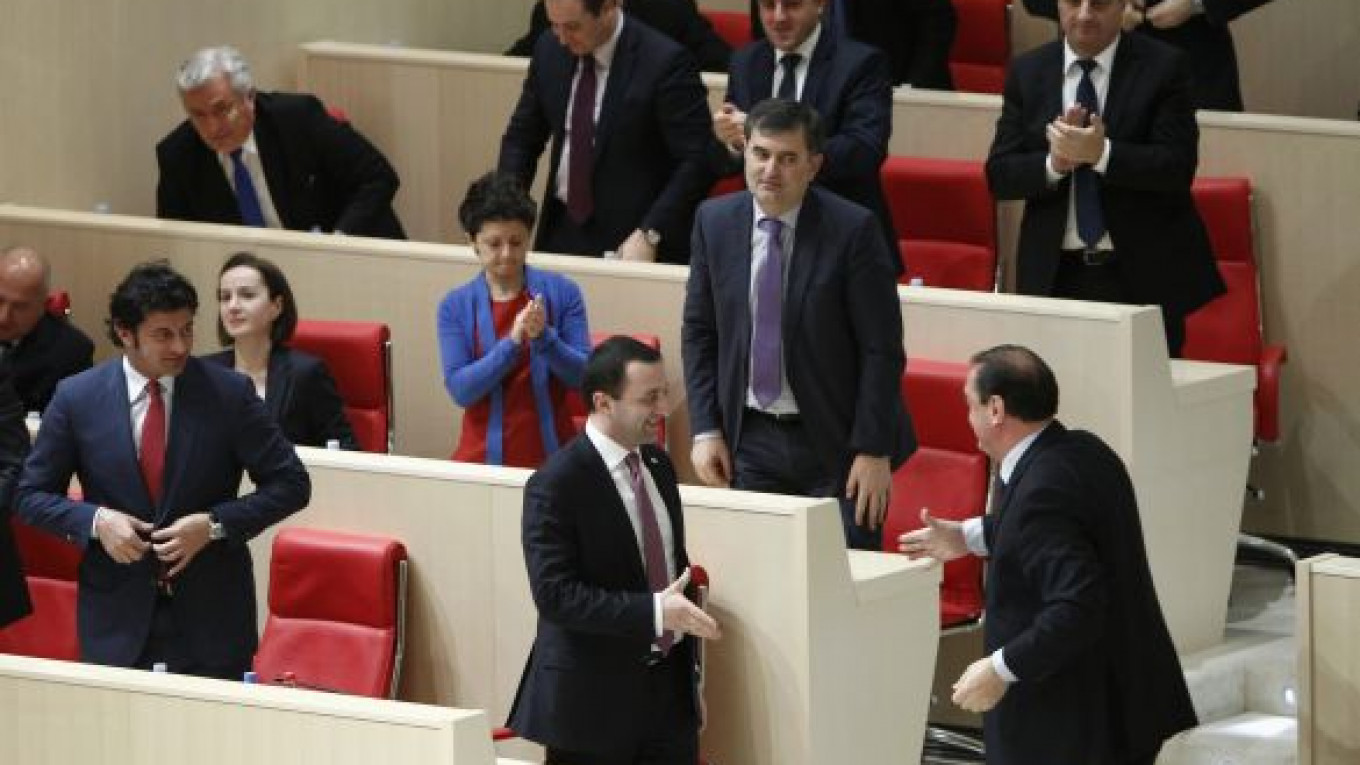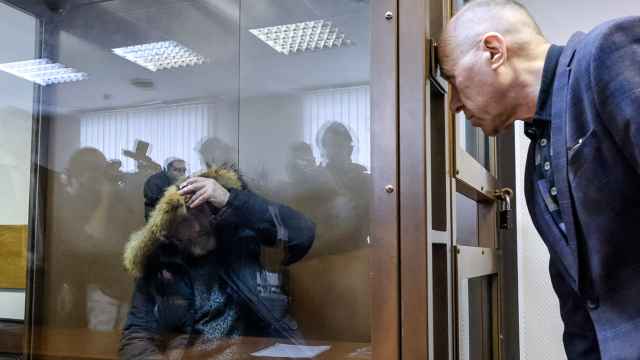TBILISI, Georgia — The new Georgian prime minister said his government would stick to the ex-Soviet republic's pro-Western course but also try to mend relations with Russia, Tbilisi's old Soviet master and adversary in a five-day war in 2008.
Parliament confirmed Irakli Garibashvili and his cabinet on Wednesday by a vote of 93 to 19, completing a political transition that has ended almost a decade of dominance by former President Mikheil Saakashvili, who avidly sought integration with the West.
Georgia has warm ties with Washington and hopes eventually to sign an association agreement, bringing it closer to the European Union. A more distant goal is membership in the NATO defense alliance, a prospect Russia strongly opposes.
"Georgia's aspiration for EU and NATO membership is the only right way for us … We will continue to move toward Europe, step by step," Garibashvili, 31, said in an address to parliament before the vote. "The government will also try to overcome a crisis in relations with Russia."
Garibashvili takes over from Bidzina Ivanishvili, a billionaire who became prime minister after leading an opposition coalition to victory over Saakashvili's party in an October 2012 parliamentary election.
Ivanishvili, who entered politics just two years ago after a business career in which he made a fortune estimated at $5.3 billion, made efforts to maintain good ties with the West while improving them with Moscow.
Ivanishvili stepped down after ally Georgi Margvelashvili was sworn in as president on Sunday, saying the departure of Saakashvili, a bitter rival, meant his job was done.
He handed Garibashvili, a former interior minister who is also a close ally, the task of treading a political tightrope between Russia and the West.
Ivanishvili, whose party's dominance of parliament enabled him to eclipse Saakashvili politically over the past year, succeeded in opening the Russian market for Georgian wine, mineral water and fruit after bans imposed in 2006.
But Georgian-Russian tensions still run high five years after the war over two Moscow-backed breakaway regions of Georgia in August 2008, and diplomatic relations have not been restored.
Under changes to the constitution that transfer many of the president's responsibilities to the prime minister, Garibashvili becomes the country's most powerful politician.
He is in charge of foreign as well as economic policy in a nation where poverty is a problem and growth has slowed after years of robust expansion.
Gross domestic product increased just 1.5 percent in the second quarter of this year, down from 8.2 percent in the same period a year ago.
Underscoring persistent political divisions, lawmakers from Saakashvili's party did not vote for the new cabinet, in which the only newcomer is Interior Minister Alexander Chikvaidze.
A Message from The Moscow Times:
Dear readers,
We are facing unprecedented challenges. Russia's Prosecutor General's Office has designated The Moscow Times as an "undesirable" organization, criminalizing our work and putting our staff at risk of prosecution. This follows our earlier unjust labeling as a "foreign agent."
These actions are direct attempts to silence independent journalism in Russia. The authorities claim our work "discredits the decisions of the Russian leadership." We see things differently: we strive to provide accurate, unbiased reporting on Russia.
We, the journalists of The Moscow Times, refuse to be silenced. But to continue our work, we need your help.
Your support, no matter how small, makes a world of difference. If you can, please support us monthly starting from just $2. It's quick to set up, and every contribution makes a significant impact.
By supporting The Moscow Times, you're defending open, independent journalism in the face of repression. Thank you for standing with us.
Remind me later.






